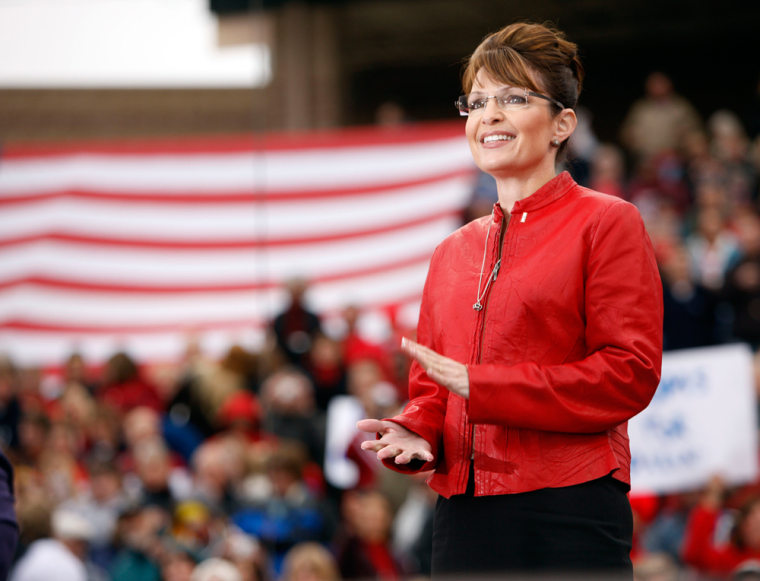When the Republican Party decided to coordinate expenses with John McCain's presidential campaign, who knew it would be color coordinated.
The Republican National Committee spent about $150,000 on clothing, hair styling, makeup and other "campaign accessories" in September for the McCain campaign after Alaska Gov. Sarah Palin joined the ticket as his running mate.
The McCain campaign now says the clothing will go to a "charitable purpose" after the campaign.
The expenses include $75,062 spent at Neiman Marcus in Minneapolis and $41,850 in St. Louis in early September. The committee also reported spending $4,100 for makeup and hair consulting. The expenses were first reported by Politico.com.
The RNC also spent $4,902 at Atelier, a stylish men's clothing store in New York. Other purchases included a $92 romper and matching hat with ears for Palin's baby, Trig, at Pacifier, a baby store in Minneapolis.
Wing Witthuhn, who owns the store with her husband, said a young staffer with an RNC credit card purchased the clothes during the Republican National Convention in St. Paul. Trig wore the romper the night Palin addressed the convention.
"With all of the important issues facing the country right now, it's remarkable that we're spending time talking about pantsuits and blouses," said McCain spokeswoman Tracey Schmitt, who has been traveling with Palin. "It was always the intent that the clothing go to a charitable purpose after the campaign."
In 2007, Democratic presidential candidate John Edwards sparked Internet derision and jokes from late-night TV comics after his campaign for the party's nomination paid for two $400 haircuts by a stylist from Beverly Hills, Calif. His campaign said the bill was paid by the campaign by mistake and that Edwards would reimburse the campaign.
The RNC has been helping the McCain campaign financially now that McCain is locked into spending only $84 million for the fall campaign under his agreement to accept public financing. Barack Obama, the Democratic nominee, chose not to participate in the public system and raised a whopping $150 million in September.
The RNC is allowed to spend up to $19 million in "coordinated expenses" with the campaign. In September, it spent a a total of $4.4 million. The clothing and styling was part of that, but most was spent on postage for campaign mailings.
A review of records for Obama's campaign and the Democratic National Committee turned up no similar spending, according to Politico.com.
So why did the RNC and not McCain's committee pay for the accessories?
The 2002 campaign finance law that bears McCain's name specifically barred any funds that "are donated for the purpose of supporting the activities of a federal or state office holder" from being used for personal expenses including clothing. A quirk in the law does not specifically mention party committees, however.
That doesn't mean the expenditure would not be subject to a challenge before the Federal Election Commission.
Lawrence M. Noble, former general counsel at the FEC, noted that as a coordinated party expense, the clothing purchase could be considered a contribution to the campaign.
"And if it was a contribution, then it could not have been used for buying clothing," Noble said. "I don't know how the FEC would come out on that question."
"If it is covered (as a personal use expense), the argument that we were going to give it to a charity doesn't help," he added.
Fifteen years ago, McCain himself complained that restrictions on political contributions for personal use at that time were too broad and he wrote an amendment to tighten the law.
"The use of campaign funds for items which most Americans would consider to be strictly personal reasons, in my view, erodes public confidence and erodes it significantly," he said on the Senate floor in May 1993.
